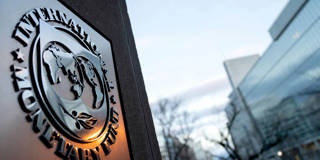Although the International Monetary Fund’s newly revised policy framework on capital controls makes some improvements on what came before, it is still likely to do more harm than good. Real-world experience and advances in economic theory have shown that the IMF’s suspicions about such policies are misplaced.
GENEVA – The International Monetary Fund’s revised policy framework for managing cross-border financial flows, approved by its Executive Board last month, broadens the circumstances under which countries may restrict capital inflows. Unfortunately, it also ties countries’ hands excessively and fails to contend with the myriad real-world contexts in which the proffered IMF advice is, or is not, appropriate. So, while volatile capital flows already pose an ongoing challenge for many emerging and developing economies, the IMF’s framework will reduce countries’ options for achieving their social objectives and may ultimately make the global economy less stable.
The previous IMF framework, approved in 2012 and known as the “Institutional View” (IV), held that controls on capital outflows were legitimate only when a country was in the throes of a crisis, and that controls on inflows should be used only as a last resort when the country was experiencing a surge in foreign money. The IV was a political compromise, reflecting deep divisions between IMF member states (including some of the largest shareholders) that favored fully liberalized capital movements, and those (including many emerging and developing economies) that wanted the IMF’s blessing to adopt policies to mitigate volatility.
Some countries opposed the IV not because they disagreed with it, but because they saw it as “overreach.” They worried that the IMF was going beyond the remit defined by its constitution (the Articles of Agreement), which gives countries considerable latitude on capital-control policies, and that a future IMF Board might suddenly change course and try to constrain what countries could do.

GENEVA – The International Monetary Fund’s revised policy framework for managing cross-border financial flows, approved by its Executive Board last month, broadens the circumstances under which countries may restrict capital inflows. Unfortunately, it also ties countries’ hands excessively and fails to contend with the myriad real-world contexts in which the proffered IMF advice is, or is not, appropriate. So, while volatile capital flows already pose an ongoing challenge for many emerging and developing economies, the IMF’s framework will reduce countries’ options for achieving their social objectives and may ultimately make the global economy less stable.
The previous IMF framework, approved in 2012 and known as the “Institutional View” (IV), held that controls on capital outflows were legitimate only when a country was in the throes of a crisis, and that controls on inflows should be used only as a last resort when the country was experiencing a surge in foreign money. The IV was a political compromise, reflecting deep divisions between IMF member states (including some of the largest shareholders) that favored fully liberalized capital movements, and those (including many emerging and developing economies) that wanted the IMF’s blessing to adopt policies to mitigate volatility.
Some countries opposed the IV not because they disagreed with it, but because they saw it as “overreach.” They worried that the IMF was going beyond the remit defined by its constitution (the Articles of Agreement), which gives countries considerable latitude on capital-control policies, and that a future IMF Board might suddenly change course and try to constrain what countries could do.